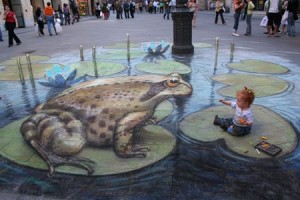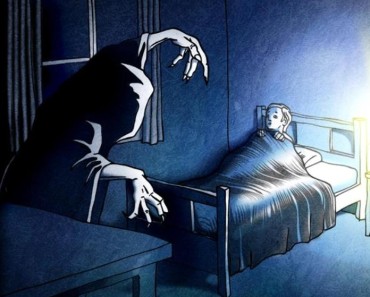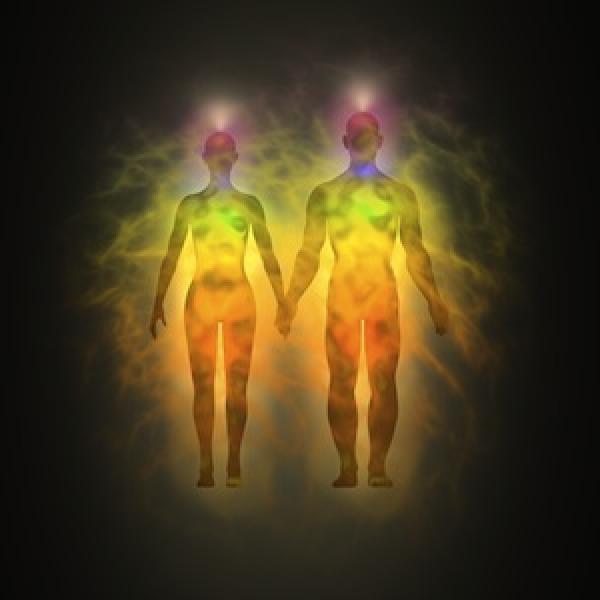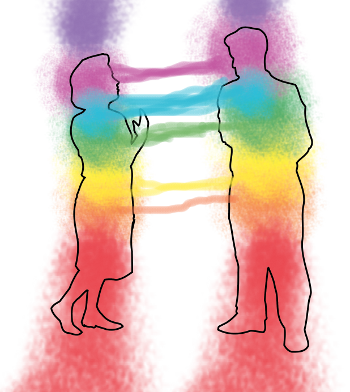 All scientific observations, and many of the decisions we make in life are based upon the information we get from our senses. We depend upon sight, hearing, taste, touch and smell to survive. However, as we examine our senses and how we influence them, we discover that there is more going on than simple observation.
All scientific observations, and many of the decisions we make in life are based upon the information we get from our senses. We depend upon sight, hearing, taste, touch and smell to survive. However, as we examine our senses and how we influence them, we discover that there is more going on than simple observation.
We tend to trust sight more than other senses. ‘What you see is what you get.’ ‘I saw it with my own eyes.’ ‘Seeing is believing.’ Yet when a crowd of witnesses is asked to describe a crime or an accident, things begin to change. One person saw a brown car hit a blue car, while another saw a black car hit a green car.
Our version of what we see is based upon our beliefs, our attention, and our perceptions. We rarely see all that is occurring around us. Instead we fill in the blanks with assumptions. When asked to describe the furniture in a living room, we assume there was a couch there, even if we didn’t see one. When we see something on a regular basis, we often overlook the details. Try to identify the eye color of a co-worker (or a close friend!) without checking before you answer.
Hearing is often based on assumptions. Have you ever heard a cat cry outside and thought it was a baby? Have you misheard what someone said, even when they were talking clearly? Have you failed to notice a loud repetitive sound until someone points it out? We are constantly surrounded by sound and learn to filter out much of the environmental noise that we are exposed to. Even when we tune in, our attention is focused on areas of interest. In a crowd, there may be many conversations going on, yet we listen only to the ones that interest us.
 Taste is a sense that is ruled by personal experience. We have emotional ties to food and judge flavors based upon our expectations. For every food you can imagine, there are some people that love the taste and others that hate it. Who is right? Obviously, taste can only be measured on a personal basis. Even then, we make mistakes. Our sense of taste is influenced by sight and smell. Cover your nose and eat in the dark and even your favorite foods may taste bland.
Taste is a sense that is ruled by personal experience. We have emotional ties to food and judge flavors based upon our expectations. For every food you can imagine, there are some people that love the taste and others that hate it. Who is right? Obviously, taste can only be measured on a personal basis. Even then, we make mistakes. Our sense of taste is influenced by sight and smell. Cover your nose and eat in the dark and even your favorite foods may taste bland.
Like taste, smell is based on experience. True, there are some smells that most people find unfavorable. However, when exposed to an odor continuously, we can learn to mask or ignore the scent. A person walking into a freshly painted house is very aware of the toxic fumes, while the painters don’t even notice them. Perfume can smell wonderful or terrible, influenced by your attraction to the person wearing it. Though we can identify the slightest amount of a distinct odor in the air, such as when a neighbor starts the barbecue, we can completely overlook the odor of smoke on our clothes.
Our sense of touch is often influenced by subjective comparison. We define what we feel as hot or cold, hard or soft, nice or not nice. Touch can also be fooled through suggestion. I remember playing a game as a child in which I was blindfolded and my finger was pushed into a lukewarm orange. I was told that I was feeling an eye-socket, and I believed it until the blindfold was removed.
 When you walk down the street, pay attention to where your senses are focused. Instead of just moving and thinking like most people, pay attention to everything. What do you choose to look at, and how do your feelings influence the interpretation of what you see? When you see a beggar on the street, do you feel love, compassion, anger, pity, hatred, fear or apathy? Or did you even notice him? Stop for a moment, close your eyes, and listen to all the sounds around you.
When you walk down the street, pay attention to where your senses are focused. Instead of just moving and thinking like most people, pay attention to everything. What do you choose to look at, and how do your feelings influence the interpretation of what you see? When you see a beggar on the street, do you feel love, compassion, anger, pity, hatred, fear or apathy? Or did you even notice him? Stop for a moment, close your eyes, and listen to all the sounds around you.
All sensory input is an interpretation of your environment, based not only on observation, but also on training, expectations, experiences, and judgment. Focusing your attention is a choice you make so that you receive the input that you desire. Since each person has a different background and may make different choices, we cannot be sure that our senses are telling us the complete story. Perception of anything is not necessarily true.
Transformation Exercises
1. In the room you are sitting, become aware of the input from each of your senses.
2. Take a walk, and pay extra attention to what you see, hear, taste, smell, and touch.
3. How has previous experience or training affected what you saw, heard, tasted, smelled, or felt?
Excerpted from Soulwork 101: A New Age Guide to Personal Transformation by Glenn Stewart Coles
©Copyright 2009, 2015 Glenn Stewart Coles






